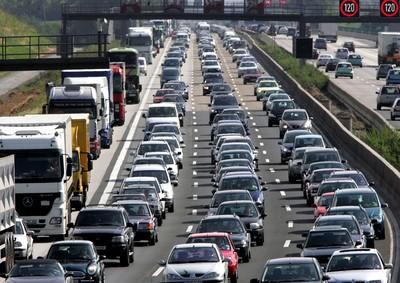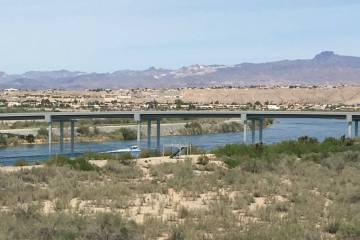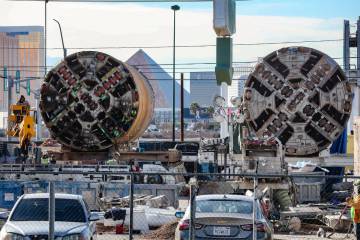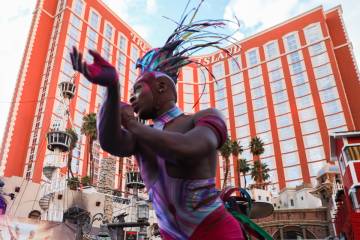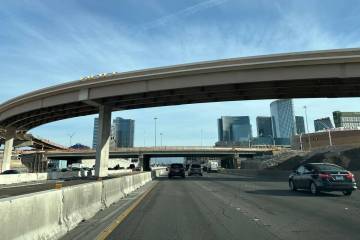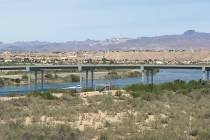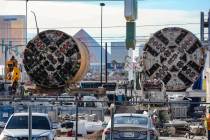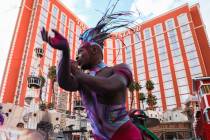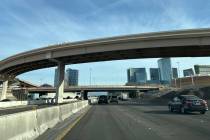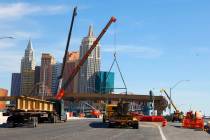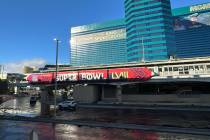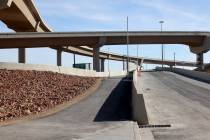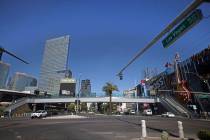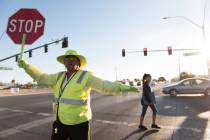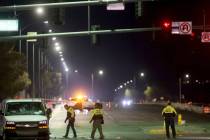It’s A Small World After All
Go on green. Stop on red. Don't kill anybody. You know the road rules around these parts. But it's a big ol' world, and there are different rules for different places.
Like having to yield for elephants in India. Or dodge land mines in Afghanistan. And while some in the Silver State think taxes are highway robbery, others in Sierra Leone might really get robbed on the highway.
Then again, some of those daily hassles faced by global commuters aren't that different from what you and I deal with in getting from work to play in Sin City.
If you want to compare how others elsewhere drive, hop on the information superhighway and scoot on over to the U.S. Department of State's Web site, which offers road safety and travel tips for locales worldwide at http://www.state.gov/travelandbusiness/.
The site warns travelers to expect the unexpected.
"While in a foreign country, U.S. citizens may encounter road conditions that differ significantly from those in the United States," the State Department says.
An example offered is India. "Travel by road in India is dangerous," the State Department says. "On Indian roads, the safest driving policy is to assume that other drivers will not respond to a traffic situation in the same way you would in the United States.
"For instance, buses and trucks often run red lights and merge directly into traffic at yield points and traffic circles. Cars, auto-rickshaws, bicycles and pedestrians behave only slightly more cautiously. Indian drivers tend to look only ahead and consider themselves responsible only for traffic in front of them, not behind or to the side."
And that's different than in Summerlin or Green Valley how?
"Heavy traffic is the norm and includes (but is not limited to) overloaded trucks and buses, scooters, pedestrians, bullock and camel carts, horse or elephant riders en route to weddings, and free-moving livestock," the State Department says.
OK, that sounds more like the Strip. (And what in the world is a bullock?) Just don't have a cow, or hit one.
"If a driver hits a pedestrian or a cow, the vehicle and its occupants are at risk of being attacked by passersby," the State Department warns. "Such attacks pose significant risk of injury or death to the vehicle's occupants or at least of incineration of the vehicle."
But if you hit a pedestrian in Vegas, the worst that typically happens is the driver gets a ding in their bumper. I'm sure elephants are valued more highly than walkers here, though.
As easy as it is to do, let's not dwell on India. There's plenty of screwed-up norms out there. Such as in Mexico, where they use turn signals.
"In Mexico, a blinking left turn signal on the vehicle in front of you could mean that it is clear ahead and you may pass, or it could mean the driver is making a left turn," the State Department says.
I'm not sure if I've ever seen a blinking turn signal in these parts.
If the use of such blinky-blinks unnerves you, and you want to leave the driving to someone else, beware the cabs.
"Robbery and assaults on passengers in taxis are frequent and violent in Mexico City, with passengers subjected to beatings, shootings and sexual assault," the State Department says.
In Vegas, you don't have much to fear from cabbies. But if you're looking for a beating, shooting or sexcapade, a few extra George Washingtons to your chauffeur will get you to the desired action.
In Cote d'Ivorie, don't even think about taking a car.
"Automobile accidents are one of the greatest threats to Americans in Cote d'Ivorie," the State Department says. And automobile accidents aren't one of the greatest threats to Americans in America?
Even Deuce-like buses are a roll of the dice in Zimbabwe. "Bus travel can be dangerous due to overloaded buses, inadequate maintenance, and unskilled drivers, and fuel shortages can complicate any travel plans," the State Department says.
Hey, anybody using Citizens Area Transit can probably relate to that.
Amtrak hasn't had a train come through these parts in years. That's a good thing, if their choo-choos are anything like the ones found in Kenya.
"Travel by passenger train in Kenya may be unsafe, particularly during the rainy season, because of the lack of routine maintenance and safety checks," the State Department says.
Good thing we don't have an elevated trainlike system here with a reputation for shedding parts. No, wait. ...
In Southern Nevada, we have to worry about explosive growth. In Afghanistan, the threat is explosives.
"All drivers face the potential danger of encountering land mines that may have been planted on or near roadways," is the State Department's tip. "An estimated 5-7 million land mines and large quantities or unexploded ordnance exist throughout the countryside and alongside roads, posing a danger to travelers," the State Department says.
We don't have toll roads in the Silver State. But they do in Sierra Leone. And toll booth staff can be a bit more demanding than what you'd find exiting the McCarran International Airport parking lot.
"Main roads and highways throughout the country have many roadblocks manned by the military, rebels or civil defense forces who demand payment in exchange for passage," the State Department says.
Politicians looking to pay for road work and take advantage of our liberal gun laws, take note.
Such a road financing plan might come in handy in Pakistan. "Roads, including most major highways, also suffer from poor maintenance and often have numerous potholes, sharp drop-offs and barriers that are not sign-posted."
Sounds just like the road work zones along U.S. Highway 95. Small world, eh?
If you have a question, tip or tirade, call the Road Warrior at 387-2904, or e-mail him at roadwarrior@reviewjournal.com or OSofradzija@reviewjournal.com. Please include your phone number.
ROAD WARRIORMORE COLUMNSDiscuss this column in the eForums!
Repairs are expected to start at 9 p.m. Monday on the Warm Springs Road bridge over Interstate 15. During repair work, the bridge will be closed in both directions. Also, Interstate 15 in both directions will be reduced to two lanes each way from 5 a.m. to 9 p.m. daily, and only one lane in each direction will be open from 9 p.m. to 5 a.m. nightly. Engineers hope to finish the work and reopen all lanes by Friday night. Drivers should expect delays and find alternate routes. Through at least July 28, drivers can expect lane reductions and traffic restrictions on eastbound Harmon Avenue east of Swenson Street on the University of Nevada, Las Vegas, campus. Those driving to UNLV will have access to the area, though flaggers may direct traffic around Gym Drive. Overnight lane reductions are scheduled for U.S. Highway 95 between Rancho Drive and Rainbow Boulevard, Sahara Avenue and Las Vegas Boulevard, and Las Vegas Boulevard and the southern Las Vegas Beltway between 8 p.m. and 5 a.m. most evenings. Drivers can expect lane restrictions on northbound and southbound Interstate 15 between the California-Nevada state line and the Cajon Pass near Devore, Calif., in San Bernardino County, Calif. Drivers should anticipate delays and watch for updates on specific closures. To sign up for e-mail alerts on I-15 road work in California or for more project information, go online to www.caltrans8.info. For phone updates on Southern California road work, call (916) 445-7623 or (909) 383-7960.



